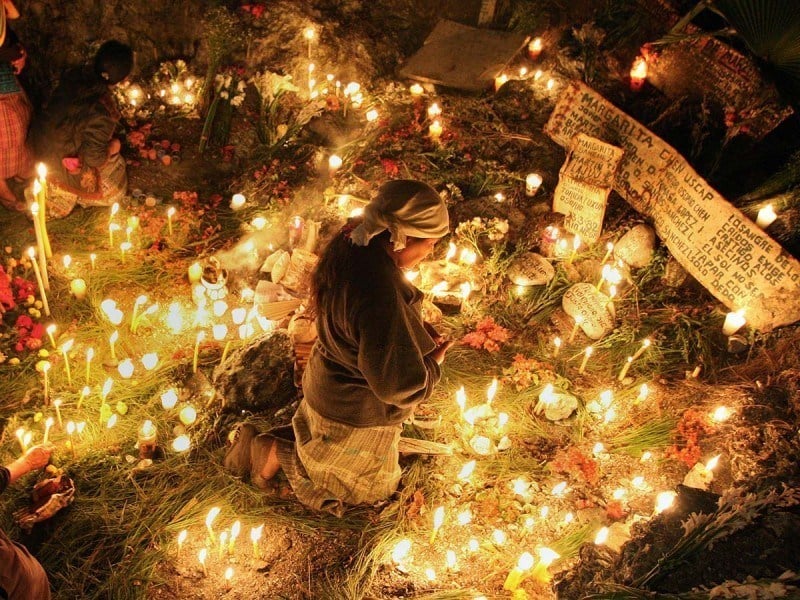One of the most successful human rights organizations in Mexico, Tlachinollan helps communities seek justice in the wake of corruption and violence.

When 43 college students disappeared from Iguala, Mexico in late September 2014, the incident was just one in a long series of tragic stories. As the country’s epidemic of government corruption and gang violence has escalated over the past decade, more than 26,000 people have simply disappeared. Some refer to the missing victims as the “open wounds” of Mexico; unable to trust the police or the courts to investigate these cases and seek justice, families of the missing are left wondering what really happened to their loved ones.
But the families of these 43 students—with help from activists across the globe—have turned the Iguala case into a turning point for their country. Their sorrow and outrage has unleashed a political firestorm in Mexico and brought unprecedented attention to the country’s corruption crisis.
So what was different this time around? Many factors were at play—and AJWS grantee Tlachinollan Human Rights Center of the Mountain was among them. The organization works with communities facing human rights violations in Mexico, offering a variety of support—from emotional to legal. Tlachinollan staff quickly reached out to the families of the missing students, and the parents asked the advocacy team to help them. Together, they shared the families’ concerns with media and communities, mobilizing massive protests at home and abroad. Their goal: pressure the Mexican government to keep searching for the missing students and investigating what really happened to them.
“It’s about certainty. It’s about getting to know the truth of what happened,” said María Luisa Aguilar, coordinator of the advocacy unit at Tlachinollan. “We talked to the families … They had been offered money by the military [to keep silent,] but they refused.
“This is not an isolated case. The reality that Iguala has shown is you will find mass graves, you will find large numbers of disappeared people in Mexico.”
Worried about potential threats to the families of the missing students, Tlachinollan took immediate measures to ensure their safety during the investigation—a necessity given Mexico’s shocking history of retaliation against human rights activists. Tlachinollan also successfully advocated for the Inter-American Commission on Human Rights to sign a unique agreement, ensuring that the investigation into the missing students would involve not just the state of Mexico, but also the families, Tlachinollan and other human rights organizations. This unique agreement aimed to ensure a fair and open investigation that couldn’t be easily undermined by corrupt government officials.
“This is where we need to be: where the pain is, where the struggle is, where the hope is. That hope allows us to continue.” --Abel Barrera Hernández, founder of Tlachinollan
There are good reasons for people to mistrust the government in Mexico, and the Iguala case has revealed many of them. So far, the Mexican government’s investigation has uncovered close ties between the former mayor of the town, local police and a criminal cartel, who reportedly worked together to kidnap and murder the students because they were planning protests. Dozens of people have been arrested, including police and the former mayor.
As of January 2015, Mexico’s attorney general has concluded that the missing students are dead, their charred remains discovered in a river. Many remain skeptical about these details, however—because of government mistrust and the fact that Mexico is home to so many unmarked graves and missing people.
Tlachinollan will continue to represent the families of the missing students during the next steps for the Iguala case, which include a separate investigation by independent experts appointed by the Inter-American Commission on Human Rights. In addition, Tlachinollan and other human rights groups successfully lobbied the United Nations to evaluate Mexico’s efforts—or lack thereof—to prevent, investigate and prosecute cases of forced disappearances. This historic achievement means the UN will keep pushing the Mexican government to keep its promises to protect human rights. It may take years to bring lasting change to Mexico’s government and justice for the massacred students, but Tlachinollan plans to continue their work for as long as it takes.
“It [the Iguala case] has symbolized what many people are suffering with,” said Abel Barrera Hernández, founder of Tlachinollan. “This is the bloody Mexico that we don’t want. This is what we need to resist and confront.
“This is where we need to be: where the pain is, where the struggle is, where the hope is. That hope allows us to continue.”




